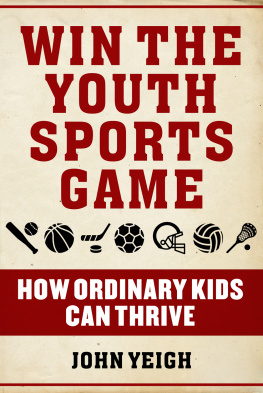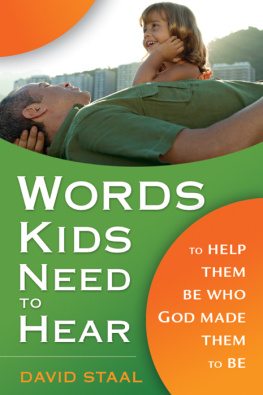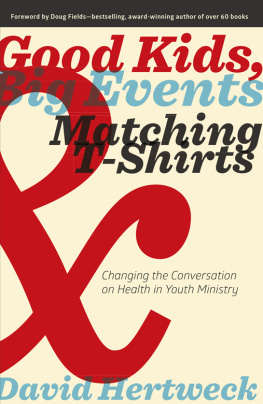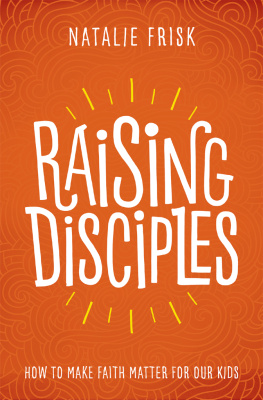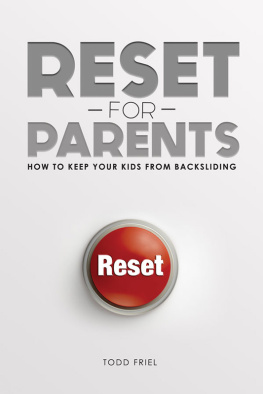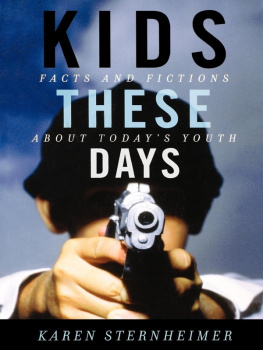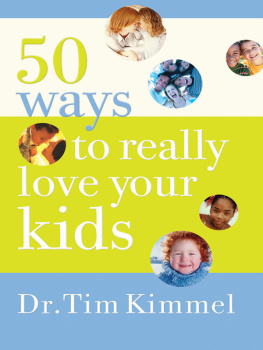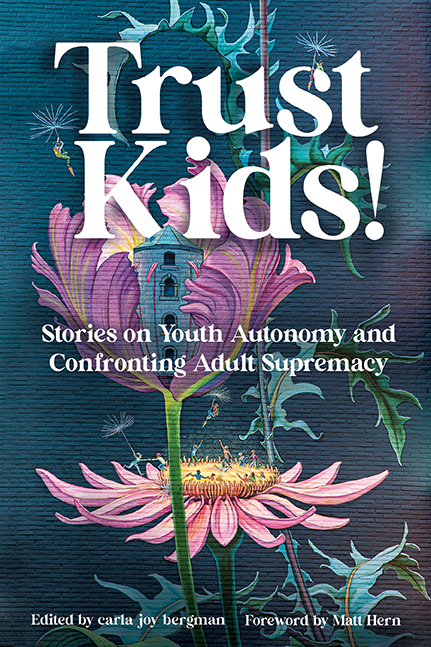Magnetos Dream three pieces by Grant Hoskins, aka Gadzooks Bazooka, 193; 199; 200
Foreword
By Matt Hern
I was flattered to be asked to write the foreword to this fine collection. Its a sweet and thoughtful book written by people coming from an impressive array of directions. Its a powerful polemical demand: that we trust kids .
But I also feel a little awkward, a little fraudulent in agreeing to write this.
My own children have grown old, and while I still hang out with teenagers every day, I rarely get the chance to be with young kids anymore. So frankly, I feel a little unsteady on this ground.
Nevertheless, out of respect for all carlas organizing work and activism, and in the spirit of friendship, I agreed.
My first thought was: did I trust my own kids when they were young? I think so, generally, but not all the time for sure, strictly speaking. I trusted that they would lie to me on occasion, more so when they were teens: it would have felt weird if they didnt. I believed (and still believe) in their instincts, their good hearts, their brains, their hard work, their love.
But did I trust them? To do what? Learn basic hygiene? Make good choices? Go to college? Not sleep with Republicans?
Then I started thinking about the kids I have hung out with over the years. And the young people I spend my days with now. Do I really trust them? And what would that look like if I did? All of the families I hang out with come from different cultural, social, and religious backgrounds than I do, and everyone has different perspectives on parenting and family life. Who am I to tell anyone how to parent their kids, or to prescribe a good childhood, or to describe what trust looks like? The idea of trust is highly unstable, malleable, and permeable: it looks very different through different eyes.
And then I started thinking about why. Why should we trust kids? Why is that an imperative worthy of so much thoughtful writing? Who is not trusting kids now? And honestly, do I trust other adults? Should I?
I started floundering some.
But then I thought of a better question: why should anyone trust me ?
Im a settler living on unceded and occupied xwmkwm territory. My mongrel-Euro family has been living on Coast Salish territories for four generations now. Im a middle-aged, middle-class cis-gendered white guy who spends all his days with racialized migrant kids on unceded traditional territories.
Which part of any of that biography suggests that anyone should trust mekids or otherwise? Almost nothing of my identity or heritage suggests that I am a plausibly trustworthy person. How might I comport and conduct myself in a way that opens the possibility of being worthy of trust? It is a question that haunts white settlers, and one that I am far from sure how to answer, so I went looking in here for ideas.
I found many things in this book that gave me a lot to think about, and it was much more than just about trusting kids. Thats some of it, but that demand is linked closely to larger questions of domination and exploitation. The writing I heard most poignantly was about building relationships everywhere that are defined by a substantive concern for the otherfor humans as much as the other-than-humans: whether that is animals, trees, rivers, or mountains.
I heard that these relationships have to start at home; that familial and very personal relationships are so often ignored or relegated to inconsequential lifestyle politics. The Left loves emancipatory social rhetoric but habitually fails to translate that to young people. The stakes are clear: if you want kids to learn how to live in a world full of domination, then start them early! If you want a world full of bosses, show em whos boss at home. If you want a world full of hierarchy, set your house up like that. If you want people living in fear and mistrust and suspicion, well, you know what that looks like.
What I heard instead were some sweet stories of older and younger people figuring out what trust might mean for them. I read about decolonizing parenting, and how family violence is so closely linked to white supremacy.
I read about how the historical arc of social justice traces gradual changes in the conceptualization and treatment of children.
I read about parenting as a relationship that isnt transactional, about how kids dont owe their parents anything.
I read that kids dont need to be taught joy in being alive. I read that we should imagine honoring and respecting them as full and whole human beings, rather than deficient or less than, as weak and needing manipulation and control.
I read about making and remaking the world right here and now.
Thats some of what I found here, and there is a whole lot more.
I really urge you to read this book. I dont know if you will find anything like what I did, but you will definitely find some beautiful, hopeful writing and a collection of powerful, challenging ideas.
Acknowledgments
I give my deepest gratitude to every single person out there who not only survived childhood but found ways to thrivethank you for lighting the way. To all the weavers, storytellers, writers, and radical folks who have been resisting child oppression since it began, and who continue to, your words and actions are tangled up in mine throughout this book, thank you all. There are too many to name, but I am going to name a few and I am sure I am missing some here too, my apologies. Thank you Emma Goldman, Peter Kropotkin, Zach Bergman, Ivan Illich, bell hooks, Helen Hughes, Chris Mercogliano, Leanne Betasamosake Simpson, Zakiyya Ismail, Carol Black, Erik Fromm, Octavia E. Butler, and Ursula K. Le Guin.
As I was doing the final edits on this book, my number one mentor and dear friend, Gustavo Esteva passed away It is with a deep sadness that I finish this book without him, and I am very grateful that he has a beautiful essay (co-written with his friends, Madhu and Dana) in the book. Gustavos work and contribution lives on in all of us. Thank you, dear friend.
And, to John Holtwho the title Trust Kids! is a direct nod tothank you for all the walls you unbuilt for and with kids, and for showing us adults the many possible pathways to better support and be in solidarity with young folks.
Thank you to my mentors, of all ages, who continue to live a thriving life while resisting. And big love to all the kids and adults that my family and I were and are privileged to co-learn alongside. We love you.


